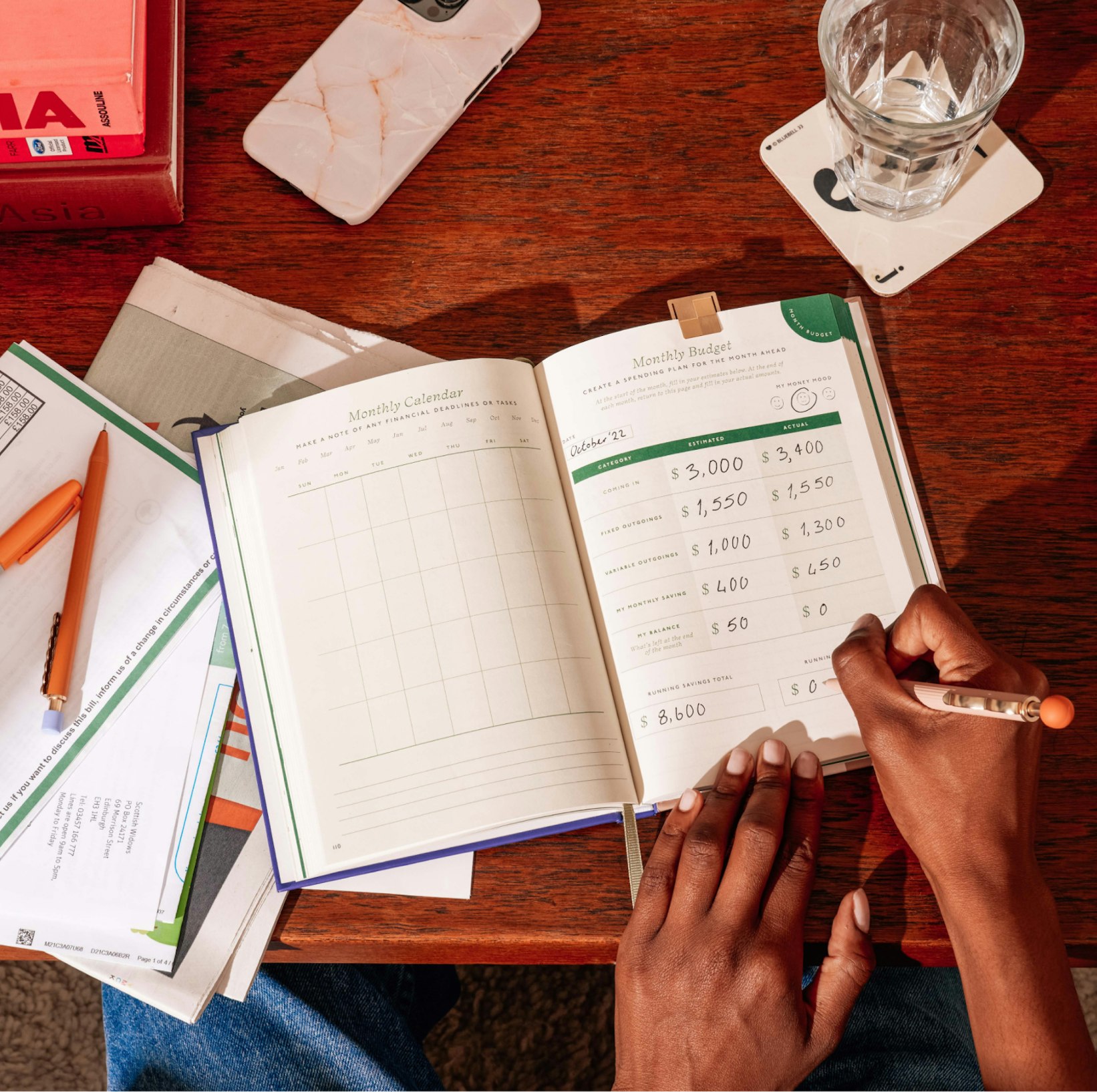Friend of Papier Elle Harikleia is a writer with over 18 years experience in finance and economics. In our finance planners, you'll find helpful articles she's written to guide you towards finding financial wellbeing. To help you get started, read on for Elle's tips on shifting your financial mindset.
1. Analyze your current money mindset
The first step in financial success is anchoring your new habits and practices in a more balanced money mindset. Taking control of your finances is a journey and having key steps rooted in your own personal motivation is important to getting productive behaviors to stick. What is your current relationship with money? What were you taught to believe about how you spend, save, and earn? Where does money feel uncomfortable? Abundant? How has money influenced your relationship with yourself or with others? Take some time to work through these questions in your finance planner to get clear on your current money mindset.

2. Vocalize your money mindset journey
One of the best ways we can start to reset our financial attitudes and behaviors is to talk about them with someone we trust. Analyzing our money mindset could bring up any number of things that keep us from meeting our goals. Sharing what you have learned about what you value and what has gotten in your way in the past helps clear out any lingering avoidance, guilt, or denial. This becomes even more powerful and effective if we are in a partnership. Meeting financial goals can become a joint effort, requiring even more sharing and transparency around what you hope to achieve with your new money mindset.
3. Create positive thought patterns around money
The next step is to create some new associations around what you believe about your finances. This can take the form of developing powerful affirmations that anchor you in your motivation. Why do you want to form new financial habits? It may be because you are hoping to invest in your business, save for a future goal, or just develop a new sense of financial freedom. This might result in building a personal affirmation like, “I am financially secure and money flows easily to me.” Returning to these affirmations as you set your goals will become an important tool. If your finances do become stressful, your affirmations exist as a helpful tool to create a little perspective and calm.

4. Move from mindset to action
Mindset is just the beginning. Once we understand our relationship with our finances and have set ourselves up for a more balanced view of money, the next step is taking action. Using your finance planner, set weekly and monthly financial check-ins with yourself by updating your money tracker, monthly budget and review pages. Use this time as an opportunity to revisit your “why” and reaffirm your positive money mindset. You should also use this time to break any big financial goals into small, measurable, and achievable steps. These steps can be tracked right here in your finance planner’s monthly calendar, whether it is saving a certain amount every month, noting down dates of key payments, or paying off a set amount of debt.
5. Staying on track with your new money mindset
Getting off track happens for all of us. One of the best ways we can reset our goals when we have missteps is to revisit the conditions at the time. Going through your finance planner, look at the activities of your past week. Where did surprise financial decisions arise that took you off track? When we understand what drives the behavior that either gets us closer to our goals, or moves us further away, we can take full responsibility for these financial actions and move forward with clarity and conviction.





























